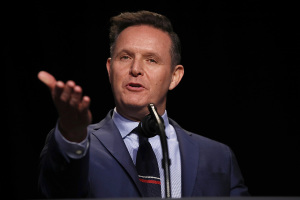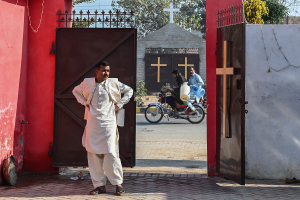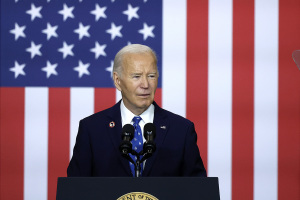Washington Scandals Raise Question: Who Is in Charge of Our Government?
Each of the three scandals currently rocking Washington, D.C., are similar in one important way – they show bureaucracies where decision-making is so diffuse that no one, it seems, is actually responsible for the mistakes that were made. The situation raises the question, with so much government action residing in large bureaucracies led by unelected officials, the so-called "fourth branch of government," who is actually in charge?
Benghazi
With the Sept. 11, 2012 terrorist attack on a diplomatic outpost in Benghazi, Libya, that led to the deaths of four Americans, Congress has learned that additional security requests were denied prior to the attack, military forces were ordered to stand down rather than travel to Benghazi after the attack started, and President Barack Obama and other administration officials blamed the attack on a spontaneous demonstration in response to a YouTube video, even though intelligence officials knew it was a terrorist attack.
At a Jan. 23 congressional hearing, Secretary of State Hillary Clinton said she took "responsibility" for what happened in Benghazi, but she did not take the blame. Who is at fault? Apparently some unnamed mid-level bureaucrats denied the additional security requests, the stand down order came from an unknown source, and the talking points that were used as the basis for describing the attack to the public were made by intelligence officials.
President Barack Obama, the White House explained, was not involved in any of the decisions that led to the Benghazi scandals.
IRS
The Internal Revenue Service selected conservative groups for audits and additional paperwork, and asked them to answer additional questions that was beyond their authority to ask. It also may have targeted pro-Israel groups, pro-life groups, certain evangelical groups and adoptive parents.
Steven Miller, the interim commissioner of the IRS, resigned as a result of the scandal, but he was not even in charge for most of 2010 to 2012, when the targeting was taking place. Doug Shulman, who was commissioner for most of that period, said he did not know about the targeting until 2012.
Lois Lerner, who directed the department overseeing the groups that were targeted blamed the incident on "some people" who "didn't use good judgment." She has not said who those people are. She did clarify before a congressional committee, though, that she did not do anything wrong, then she exercised her Fifth Amendment right to not answer any questions on the grounds that her testimony may incriminate her.
Obama, the White House explained, learned about the IRS scandal through news reports.
Associated Press
The Justice Department secretly obtained thousands of phone records over two months from 21 phone lines at the Associated Press as part of an investigation into the leaking of classified information. The government intrusion was unprecedented due to the broad scope of the monitoring and the heads of AP were not notified that their reporters were being investigated.
The head of the Justice Department, Attorney General Eric Holder, was not involved in the investigation because he personally recused himself for some reason that has not been made public.
Unlike the IRS scandal, though, Holder defended the unnamed people who oversaw the investigation that went against the Justice Department's own guidelines. Deputy Attorney General James Cole "ultimately authorized the subpoena," Holder said. But, the person in charge of the investigation, and what exactly they were investigating, is still unknown.
Obama, the White House explained, knew nothing about the Justice Department's AP investigation.
Fourth Branch of Government
"Our carefully constructed system of checks and balances is being negated by the rise of a fourth branch, an administrative state of sprawling departments and agencies that govern with increasing autonomy and decreasing transparency," Jonathan Turley, Shapiro professor of public interest law at George Washington University, wrote for The Washington Post.
Turley notes that government bureaucracies, or the "fourth branch," have grown so large and numerous that they have a larger impact on American's daily lives than the three branches of government – president, Congress and Supreme Court. Each of the three scandals currently rocking Washington, D.C., are similar in one important way: they show bureaucracies where decision-making is so diffuse that no one, it seems, is actually responsible for the mistakes that were made. The situation raises the question, with so much government action residing in large bureaucracies led by unelected officials, the so-called "fourth branch of government," who is actually in charge?
While bureacracies are ostensibly part of the presidency, Turley notes that they "have evolved into largely independent entities over which the president has very limited control."
"The rise of this fourth branch," Turley concludes, "represents perhaps the single greatest change in our system of government since the founding.
"We cannot long protect liberty if our leaders continue to act like mere bystanders to the work of government."





























